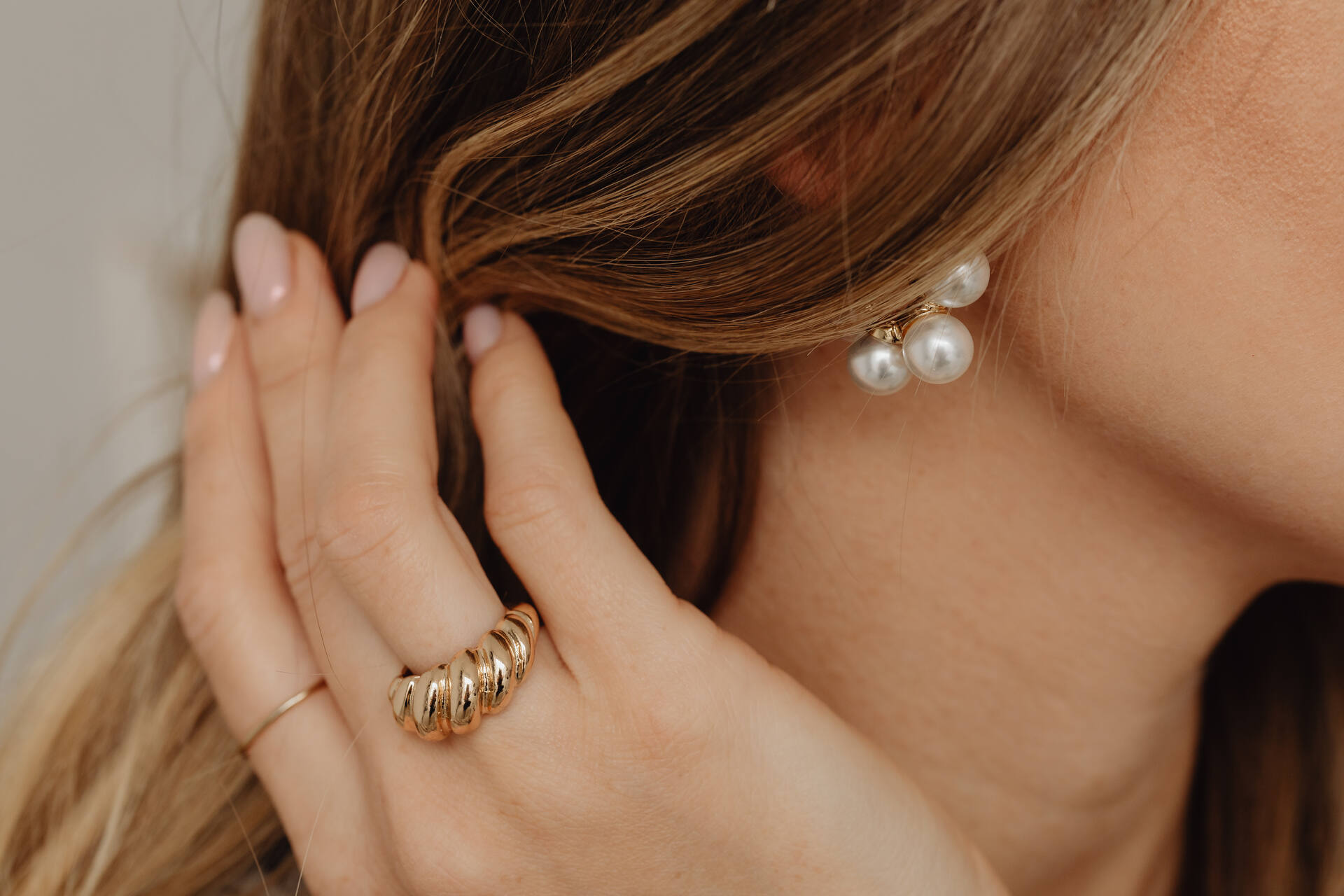“You’re so egotistical.”
I remember hearing these words growing up. Being scolded for taking care of myself. Feeling misunderstood when I tried to express my needs.
Associating self-love with being selfish and self-absorbed made me neglect myself for years. And I know I’m not the only one.
For a lot of us, self-love is a foreign concept. Something we read about in fancy magazines or hear about from our favorite meditating-every-morning, journaling, green-smoothie-drinking influencers.
This brings up an interesting question…
What Does Self-Love Mean?
I think there’s no universal definition of self-love, since it means something different to everyone, but I’m going to give you my take on it.
For me, personally, self-love is about loving yourself for exactly who you are; being compassionate, gentle, and patient with yourself; realizing what your emotional needs are, and knowing how to meet them on your own.
The best part about self-love is that it’s not ‘one size fits all.’ The truth is that only you can define what self-love means to you.
Why Self-Love Is Important
Whether you’re single or in a relationship, self-love is equally important, and some might even go as far as to say that “Self-love is the best love.”
What makes self-love essential is that having a strong, healthy relationship with yourself, sets the foundation for any other relationship in your life.
You’ve probably heard the self-love quote: “You can’t pour from an empty cup” and while it might sound a bit cliché, it’s still something worth reflecting on.
How can you expect to take care of the people around you while being absolutely depleted, exhausted, and running on autopilot?
Since becoming a mom this year, I’ve been facing a new challenge: catering to my newborn’s needs while keeping it together on little to no sleep.
And the one thing I found is that on the days I took the liberty of spending 10 minutes just on myself or asking someone for help, I was showing up as the best version of myself: more relaxed, grounded, and present for my baby boy.
Self-Love vs. Selfishness
So what is the difference between self-love and selfishness?
As we mentioned, self-love is about being kind and compassionate with yourself.
Selfishness relates to not caring about other people and going above and beyond to only serve yourself regardless of the consequences.
Here’s Why Self-Love Is Not Selfish
Let me give you a bit of a backstory.
Growing up, I was taught that self-love was selfish.
Every time I tried to take care of myself, I felt guilty. So, naturally, people-pleasing became my default mode. I was constantly trying to please everyone around me and meet their needs.
It made me feel like I was a good person, I was doing the right thing. After all, I didn’t want to be called ‘selfish.’
Fast forward to the moment when I realized that I had abandoned myself yet again. I had put everyone else’s needs before my own. I felt exhausted, angry, frustrated, disappointed, and sad.
I remember bawling my eyes out on the kitchen floor. Until it dawned on me: I didn’t have to do anything to deserve love. I already had love. I was love.
That was the moment I promised myself that I would always put myself first.
I haven’t abandoned myself ever since.
One of the reasons why some of us struggle with self-love is having an insecure attachment style due to an unstable relationship with our parents or primary caretakers.
If you want to find what your attachment style is, take this free 1-minute quiz:
Why Am I Telling You This Story?
Because I want you to know what happens when you’ve neglected yourself for far too long. By not being there for yourself, you’re telling yourself that you cannot be trusted. And that is a huge problem if you want to trust others.
Self-love is not selfish because if you don’t take good care of yourself, you won’t be able to be at your best for other people. It’s like donating money to charity when you’re starving and you have no roof over your head.
Can you do it? Yes.
Is it going to be the healthy, wise thing to do in that situation? Not really.
Have You Been Lied To?
Society, your family, teachers, and friends—they all have their own ideas of what life should look like. The problem is, if you listen to everyone else’s idea of who you should be, you‘re robbing yourself of your individuality.
Self-love is about knowing who you are, showing up unapologetically, being kind and compassionate to yourself, and most importantly, being there for yourself when you need it the most.
So, no. I don’t think self-love is selfish. In fact, I think that transforming the relationship you have with yourself by practicing self-love will set the foundation for any other relationship in your life.
If you’re kind, compassionate, and loving to yourself, you’re going to have the energy to help others as well.
Choosing yourself doesn’t make you selfish. It makes you caring, loving, and accepting… of YOURSELF.
Now that we’ve discussed what self-love really is and how showing up for yourself is not selfish, let’s get into some self-love examples.
Self-Love Example #1: Setting Healthy Boundaries
When you hear the word ‘self-love’, setting healthy boundaries is probably not the first thing that comes to mind. That’s exactly why I decided to address it first.
One of the things I learned the hard way is that loving yourself sometimes means saying no even if:
- You feel uncomfortable
- You’re scared you’re going to offend the other person
- Every fiber of your being wants you to cave and do what they want you to do
So, what is the first small step you can take when it comes to setting healthy boundaries?
Learn to tune into your body and see if you really want to do something or not.
Here’s an example:
Let’s say one of your friends invites you to have dinner, but you’d rather stay at home. Before replying, try to notice what’s happening in your body. Do you feel nervous and unsettled, or excited and happy?
Pay attention to the sensations in your body. If you feel like your body’s shrinking, the answer you’re probably looking for is ‘no.’ And if you feel like it’s expanding, then saying ‘yes’ will most likely be your best bet.
Okay, so what happens when you realize your true answer but still feel anxious to say no. What if you’re afraid that you’ll hurt their feelings or feel guilty afterward?
Well, in that case, I have some tough love for you: you don’t owe anything to anyone.
Your feelings are valid. If you feel like saying ‘no’, just say it politely. You don’t have to over-explain yourself or defend yourself, because you’re not responsible for anyone’s reactions to your actions.
Now, I’m going to be honest with you: setting healthy boundaries is going to feel like a truly hard task in the beginning, so be patient with yourself. You won’t be able to get it right every time and that’s okay. Give yourself grace.
Self-Love Example #2: Acknowledging Your Feelings
If you’ve been trying to run away from your feelings, I hear you. Facing the so-called ‘void inside’ was one of my worst fears. The truth is, I just didn’t love myself enough to have the courage to sit with my pain.
So, how can you sit with your feelings and be kind and gentle with yourself?
The first thing I want you to do is find a quiet place where you know you won’t be disturbed for 10-15 minutes. Sit somewhere comfortable, close your eyes, and take a few deep breaths breathing in through the nose and out through the mouth.
Now I want you to notice what’s happening in your mind. Do you notice any repetitive thoughts? Are they trying to hijack your attention from focusing on the present moment? Pay attention to your thoughts, without judging them.
Then, try to tune into your body. Are there any uncomfortable sensations? Where are they located? Can you describe the predominant emotion you feel? Breathe through it. Let it pass through your body, no matter how uncomfortable it is. You’re here for yourself and you aren’t going anywhere. It’s safe to let go. Let the emotion come to the surface.
When you feel a sense of relief, gently move your arms and legs around. Open your eyes. If you feel upset, give yourself a nice hug. Treat yourself like you would treat your best friend in that situation. Be kind, soft, and patient. Stay still for a while.
Self-Love Example #3: Going From Self-Criticism to Self-Compassion
This is a hard one, especially if you’re used to being too critical of yourself. You know that little voice on the back of your head that’s always there, lurking in the background, saying mean things to you?
That is your inner critic. It’s not you. It’s the internalized voice of a parent, teacher, or primary caretaker. Someone who criticized you growing up.
Now, the interesting thing is that sometimes your inner critic is actually trying to protect you in a twisted way. It’s trying to keep you safe by never going out of your comfort zone. But no matter what you’ve been getting out of this dysfunctional relationship with your inner critic, it’s time to let it go.
If you want to learn more in-depth ways to silence your inner critic and practice self-compassion, I invite you to check out The Self-Love Toolkit. It’s my proven step-by-step framework on how to love yourself unconditionally that’s helped hundreds of people all over the world.
If you want to check out the self-love workbooks for women, self-love affirmations, and 500+ self-love journaling prompts and exercises, get instant access now:
Learn How to Love Yourself, Unconditionally
50%
SAVE

(in less than 15 minutes per day!)
OFF
Work on improving your inner monologue by questioning the inner critic. Next time you say to yourself something like: “You’re unloveable. You don’t deserve anything. You’ll always end up alone.”, notice that, and start looking for evidence of the opposite.
For example, you can talk back to your inner critic by saying something like: “That is not true. I am lovable. I have a partner who loves me. My friends love me. My pets love me. And now I’m also working on loving myself. And you know what? I’ll never be alone because I’ll always have myself.”
What you can also do is detach yourself from it completely. You don’t even have to talk back. Simply know that whatever this inner critic is saying is not true and it doesn’t deserve your precious time and energy.
Or you can also question it by asking yourself one simple question: Is this a fact? And if it’s not, you don’t dwell on it anymore.
So, How Can You Learn to Love Yourself?
Honestly, self-love is like a muscle: you have to train it every day, you might skip a day or two, but the power of compounding is on your side.
The more you develop healthy habits, the faster you’re going to get there. If you’re not sure where to start or you’d like to get inspired, check out these eight self-love habits that changed my life:
Love,






